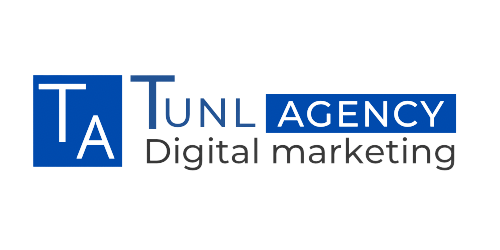SEO is one of the fastest-growing forms of marketing in the United States and worldwide. It is particularly important for travel agencies (as well as other business types within the travel and tourism industries) to optimize their ability to rank within Google’s search engine. This review discusses SEO for your travel agency and offers some of the more important tips to follow during your SEO campaign.
What is SEO?

Search engine optimization (SEO) is the process of improving how well your travel agency’s website ranks in Google’s search engine results pages (SERPs). It particularly refers to efforts that allow you to rank high for keywords and keyphrases organically.
For example, if a web browser searches the term “travel agent in Houston,” then they will see the results pages. Those who rank at the top of these results organically (rather than through paid advertisements) have the most optimal webpage and website for this specific search term, according to Google’s algorithm.
Why Is SEO Important for My Travel Agency?
Travel agency marketing efforts are increasingly shifting to online channels as more and more travelers are searching online. SEO, in particular, is a way to create sustainable traffic to your website without the need for paid advertisements.
Additionally, you can give your business an edge over your competition with SEO efforts. Without a sound SEO approach for your travel agency, however, you are risking the loss of a substantial number of prospective clients.
How Can I Optimize My Travel Agency’s SEO?
Every SEO campaign should be personalized. SEO agencies that offer a cookie-cutter approach are not likely to meet your individual need. However, there are some more common tactics that work well across all SEO campaigns. Specifically, you can help optimize your travel agency’s SEO by:
- Optimize your landing pages
- Determine the most appropriate keywords and keyphrases
- Ensure your content is original and high-quality
- Ensure your website is responsible and mobile-friendly
- Acquire high-quality and white hat backlinks
- Use social media to your advantage
- Optimize your internal link strategy
- Check your SEO analytics regularly
Whether you intend to do your own SEO or outsource to an SEO agency, it is important to have a basic understanding of these eight tips. The following is a closer look at each SEO tip for your travel agency.
1. Optimize Your Landing Pages
Your landing pages should be optimized to rank well within Google. So what does this mean, exactly? Perhaps most notably, this includes technical SEO improvements. Examples of technical SEO tasks that should help improve your travel agency SEO include:
- Ensure your website uses HTTPS
- Check for errors and excluded pages in Google Search Console
- Ensure fast load times with all landing pages
- Fix broken internal and outbound links
- Optimize your URL structures
- Add and optimize your structured data
- Ensure the proper use of redirects
For example, you may need to address issues with a redirect chain if you one or more pages that are creating multiple redirects. Of course, every website requires an extensive SEO audit before putting together a plan to optimize landing pages.
2. Determine The Best Keywords and Phrases

Keyword research is an essential part of your SEO campaign(s). The best keywords and keyphrases for your travel agency depend on the specifics of your agency (services that you offer, your location, etc.). However, an example of keywords that may be worth targeting for your travel agency include:
- Travel agency near me
- Travel agency in [city]
- Travel consultant
- Honeymoon travel agent
- Online travel agent
- Luxury travel agent
Keep in mind, these are very broad keywords listed above and may not necessarily be ideal for your website. Of course, your specialty will play a role in your keywords list. For example, if you primarily help with cruises, then “cruise travel agency in [city]” may be worth targeting.
3. Ensure Your Content is Original and High-Quality
Content is the currency of the internet as it pertains to search engine optimization. The more content you are producing the more opportunities you are giving yourself to rank well within Google and drive (free) traffic to your website.
However, low-quality content that is not optimized for SERPs may simply waste your time and effort, especially if it is not targeting relevant and attainable keywords that have commercial intent. Be sure not to rush through the content development process and ensure you are providing useful resources and information for your travel agency’s website visitors and prospective clients.
4. Ensure Your Website is Responsive and Mobile-Friendly
There are a similar amount of mobile searches for travel agents as there are desktop or tablet searches. Since your SEO campaign is conducted on a desktop or tablet, there is all too often a tendency to focus on the friendliness of these versions. However, your approach should be more balanced, and mobile responsiveness, along with desktop and tablet optimization, should be a top priority.
5. Build Quality, White Hat Backlinks
The term “white hat” refers to methods of obtaining backlinks that are genuine and organic. Black hat techniques, on the other hand, refer to methods that are more likely to lead to spammy links and negatively impact your travel agency’s SEO. Your SEO campaign should involve a clean and honest backlink acquisition strategy that includes outreach efforts to reputable, industry-relevant websites, blogs, directories, etc.
6. Use Social Media to Your SEO Advantage
A strong social media presence is a great way to generate more traffic to your site, raise brand awareness, and improve your brand’s reputation (among other benefits). While many know this, fewer are aware that you can use social media to improve your SEO as well.
Google uses social media indicators to determine how well your website ranks. Specifically, the accumulation of social shares via Facebook, Twitter, and Instagram can signal to Google that your content is respected. Comments and likes on social posts may help as well. Subsequently, it is encouraged to have a strategy in place to encourage and promote social sharing.
7. Optimize Your Internal Link Strategy
Internal links are hyperlinks from one page of your website to another. There are different types of internal links, such as contextual links, navigational links, footer links, and image links.
A successful internal link strategy that consists of properly placed internal links can help improve your ranking within SERPs. This is because they indicate which pages of your website are important; a webpage with no links is likely to be considered less important by Google. However, of course, stuffing pages with internal links can be counterintuitive as well, whereas a balanced strategy can help your website rank optimally.
8. Check Your SEO Analytics Regularly
You will want to check your progress over time. Perhaps the best way to do this is to connect your Google Analytics account with your website so it tracks your data. When monitoring the SEO analytics for your travel agency, take a close look at these key SEO metrics:
- New referring domains
- Domain authority
- Keyword rankings
- Impressions
- Clicks
- Click-through rate (CTR)
- Bounce rate
- Average time on site
- Conversions
It can help to use a spreadsheet to monitor your progress. You can monitor your SEO progress for free with Google Analytics and Google Search Console. Screaming frog is another free resource (with the option of a paid plan). There are paid SEO software that may help as well, such as SEMRush or AhRefs.
Contact Tunl Agency Today to Get Started With Travel SEO
Tunl Agency specializes in SEO services for travel agencies. To learn more about our SEO services and to discover how an SEO campaign can benefit your travel agency, get in touch with us today.


Leave a Reply